Search
Search Results
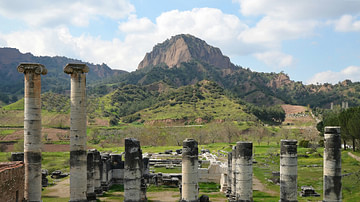
Article
Melito of Sardis and his Apology for Christianity
Melito of Sardis (d. c. 180 CE) was a bishop in the city of Sardis (near modern-day Sart, Turkey) who was regarded as one of the greatest Christian thinkers, writers, and apologists of his time. In the modern age, he is best known for his...
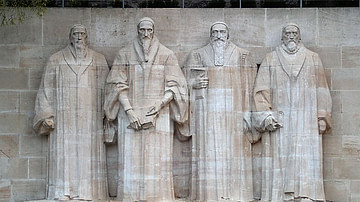
Article
Ten Protestant Reformation Facts You Need to Know
The Protestant Reformation (1517-1648) was one of the most significant cultural, political, and religious events in the history of Europe and helped shape the modern world. It was a complex event spanning over 100 years, which radically changed...
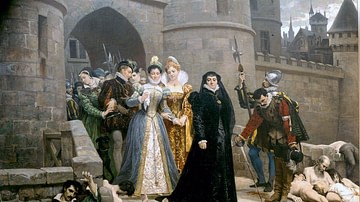
Article
Margaret of Valois' Account of St. Bartholomew's Day Massacre
Margaret of Valois' eyewitness account of St. Bartholomew's Day Massacre is among the most famous and the only written record of the event left by a member of the royal family of France at the time. Her account appears in her memoirs as Letter...
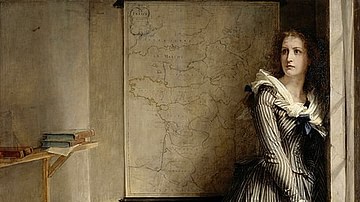
Image
The Assassination of Marat
The Assassination of Jean-Paul Marat, oil on canvas by Paul-Jacques-Aimé Baudry, 1860.
Nantes Museum of Arts.
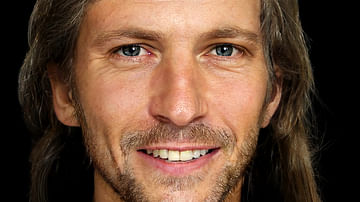
Image
Richard I the Lionheart
Face reconstruction of Richard I of England (the Lionheart, r. 1189-1199), based on the funerary effigy in Rouen Cathedral. He also ruled as Duke of Normandy, Aquitaine and Gascony, Lord of Cyprus, and Count of Poitiers, Anjou, Maine, and...
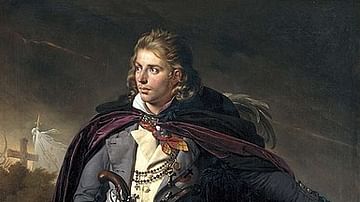
Image
Jacques Cathelineau
Portrait of Jacques Cathelineau (1759-1793), generalissimo of the Catholic and Royal Army during the War in the Vendee (1793-1796). Also known as the "Saint of Anjou", Cathelineau liked to lead his men from the front, a habit that cost him...
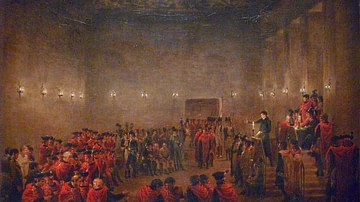
Image
Meeting of the Deputies on the Evening of 19 Brumaire
In the aftermath of the Coup of 18 Brumaire, Lucien Bonaparte convenes a meeting of 25 deputies from each of the two councils of the French Directory, to finalize the abolition of the Constitution of Year III and to form the French Consulate...
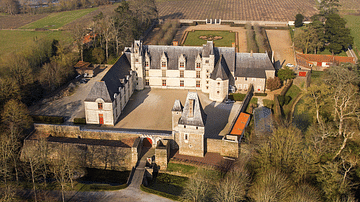
Image
Château de Goulaine
Château de Goulaine, Haute-Goulaine, Loire-Atlantique, France. In the 12th century, Jean de Goulaine, Captain of the city of Nantes, reinforced the property to protect it from attack, and it is still surrounded by marshes today. Since then...

Definition
Christianity
Christianity is the world's largest religion, with 2.8 billion adherents. It is categorized as one of the three Abrahamic or monotheistic religions of the Western tradition along with Judaism and Islam. 'Christian' is derived from the Greek...
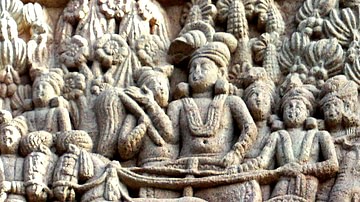
Definition
Ashoka the Great
Ashoka the Great (r. 268-232 BCE) was the third king of the Mauryan Empire (322-185 BCE) best known for his renunciation of war, development of the concept of dhamma (pious social conduct), and promotion of Buddhism as well as his effective...